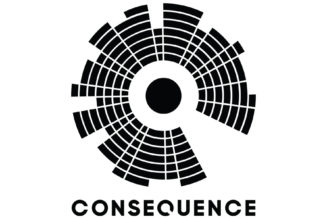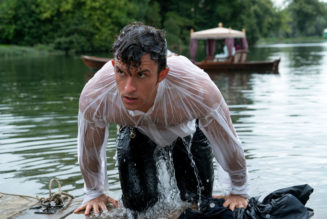
Perhaps no artist was better equipped to withstand quarantine, at least from a logistical perspective, than Brandi Carlile.
The singer lives on a farm in rural Washington state, about 45 minutes outside Seattle (and 10 minutes from her tiny hometown of Ravensdale). Her core bandmates Phil and Tim Hanseroth are her neighbors, and their families hunkered down together throughout the pandemic. With her songwriting partners conveniently located within her “bubble,” Carlile continued to work, conjuring her aptly titled seventh studio LP In These Silent Days.
The anticipated follow-up to her Grammy-winning masterstroke, 2018’s By The Way, I Forgive You, is once again magnificent — a triumphant patchwork of Americana, folk-rock, pop and soul anchored by yet another show-stopping centerpiece in “Right on Time,” the album’s towering lead single.
It seems Carlile is good for at least one of these instant classics per album, beginning with 2007’s breakthrough “The Story,” which established her as an artist destined to transcend her rootsy comfort zone. The new track, which opens the record, is a cresting ballad of conflict, desperate requests for reconnection and ultimately the acceptance of love’s volatility and requisite missteps — between spouses, family, friends; pick a relationship, it applies.
“It wasn’t right, but it was right on time,” Carlile wails with exceeding power and warmth, taking stock of what was apparently a very necessary argument.
Such is the album’s central theme: Investigating a life built on bumps and imperfections — some of her own doing, some beyond her control — and making peace with those mistakes, even in moments of loss, anger and frustration.
As Silent Days was recorded in the same Nashville studio as By The Way… and again produced by Dave Cobb and Shooter Jennings, the album plays as a loose sequel, though these 10 songs generally feel more minimalist; not quite as cinematic as “The Joke” or bombastic as “Hold Out Your Hand.”
“You and Me on the Rock,” a sweetly acoustic ode to the simple life — boosted by backing vocals from Lucius’s Jess Wolfe and Holly Laessig — is heavily influenced by Joni Mitchell, a muse Carlile has befriended and whose iconic Blue album Carlile will once again perform in its entirety, at Carnegie Hall this fall.
Several of the record’s stripped-back tunes appear to be speaking directly to Carlile’s two young children: The understated “Stay Gentle” certainly is, as is “Mama Werewolf” a moodier campfire song where Carlile, 40, comes to grips with her darker side: “I pray to God that that sun will rise / But that sun don’t always rise.”
Though “This Time Tomorrow,” a softly heartrending song that instills parting words of wisdom, may be interpreted either from Carlile’s voice, or a lost loved one beckoning to the singer. Either way, it’s a timely track for our era of unprecedented illness and death.
The record picks up the pace with “Broken Horses,” a roiling alt-country jammer reminding that even in her moments of vulnerability, Carlile is not to be fucked with: “I wear my father’s leather on the inside of my skin / I’m a tried and weathered woman but I won’t be tried again,” she seethes, her patented vocal cracks spidering through.
The song shares its title with Carlile’s new memoir, a No.1 New York Times best seller released in April — while we were all baking banana bread, Brandi was busy writing her next chapter.
Near the record’s end, Carlile gets mildly political on “Sinners, Saints and Fools,” a string-imbued folk tune, which tells the story of a man who insists on laws to keep out “the weary desperate souls who washed up on the land.” The allegory for xenophobia comes to a satisfying end when the man reaches heaven, but it’s surrounded by a wall. He’s banished downward.
Near the record’s end, Carlile gets mildly political on “Sinners, Saints and Fools,” a string-imbued folk tune, which tells the story of a man who insists on laws to keep out “the weary desperate souls who washed up on the land.” The allegory for xenophobia comes to a satisfying end when the man reaches heaven, but it’s surrounded by a wall. He’s banished downward.
While In These Silent Days is a deeply intimate collection, it remains universally accessible; songs about life, which move well beyond rigid genre labels, as the best songwriting does. It’s another beautifully conceived and singular project from an artist who still feels like an underdog, even as she writes music that stands up against Elton John and Carole King.
A new piano-driven track called “Letter to the Past” plays much like a soulful King tune, only elevated by Carlile’s thickly woven vocal texture and the color it yields. It’s a song begging to be covered — Adele should be busting down the barn door.
And again, it’s a song that recognizes humanity’s blunders and accepts them in the name of love and catharsis, or at least living to sing another day.
“You’ll be wrong, ‘cause sometimes we get it wrong,” she sings. “But nobody leaves here alive and nothing holy comes from being right. So, don’t hold your breath like that / Baby let it go.”










